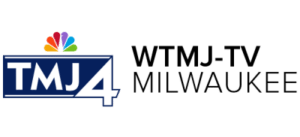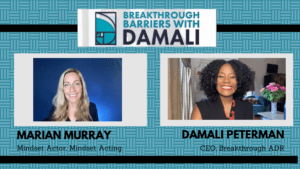Date: March 3, 2022
- What do you want people to know about you? Describe yourself in 6 words.
Shamil: I’m a peacebuilder, father of teenagers and a lover of movies. -
Tell us your name, your business name or industry, location and description. Why are you in this field? How did you get here?
Shamil: I mean, things kind of looked very linear in retrospect. I would never have been somebody who followed a plan. I taken opportunities when they’ve come up. And I felt very fortunate that wonderful opportunities have opened up for me. But when I look in retrospect, I think the seeds of this career for me, it’s really a vocation more than a job came from how I was raised. I grew up across religious, national political dividing lines, not in any dramatic way, but my parents were immigrants from Turkey and Syria. The town I grew up in, we were the only Muslim family in town when I was growing up we used to travel back from Connecticut, where I grew up to . Where the vast majority of my mother’s family was for the full summer every summer until I started getting summer jobs. And I think I just saw real value and had deep friendships and family across a lot of those dividing lines. And so, sometimes people had strong negative views about one another that not only did I not share, but in some ways hurt me because I felt part of these different communities from political liberals to political conservatives for Muslims to Jews from Turks to Americans, they all are these different dividing lines and so I think them all if I look back on it I think the seeds were. - What was your single biggest challenge in running your business or working in your industry throughout the pandemic?
Shamil: In the last year alone, there have been coups, political conflict,in a third of the countries where we work. I’ve never seen a year with more political disruption, political violence in the places where we worked in this year. And that’s on top of what you’re pointing to, which is the pandemic which literally affected every human being’s life or the other, you know, so, I think the balance of sort of staying committed and optimistic. I am a generally optimistic person. Maybe I’m sometimes naive, but I think I’m a more grounded optimist. But this has been a hard year to stay optimistic, the communities that I’m a part of quite down to my girls. One of my daughter’s schools has been really divided over everything from race relations to political elections, so maintaining that optimism because you know, it’s a cliche but hope is really the fundamental starting point for any change. Without hope you might want to give up. And I think a key for me has been maintaining those connections across our global organization.
- Like the Elton John song, you are still standing. Where does your resilience come from and how do you tap into it?
Shamil: In the organization of articulating our organizational values, I know a lot of organizations do this. This was a really meaningful process for us and March will be our 40 year anniversary. And we’ve often, we’ve very regularly visited the values of our approach to resolving conflict like our the work that we do out in the world and we’ve drilled down into those values and principles, we’ve updated them, road tested, but the values of the organization is something different. They have to be equally relevant to the accountants who aren’t doing peace building out in the world directly, but supporting it or the driver or whatever it might be. And we have these five values and I think at least two of them you would find in most peace building organizations, right collaboration, empathy. Results is an important one to us that we’re not just about the process, but there are two that are really so specific, in my view, as I reflect on your question about resilience, Audacity and tenacity, that, that when we talk to people in the organization about what you know, this values process wasn’t one where we defined it from headquarters. When we actually asked people what do you hear? What keeps you here? What do you think makes this organization distinctive? And those two resonated really powerfully. You’ll hear people’s real pride about the audacity of the goals we think, but then also the tenacity to stick to intentiveness and I think what’s kept me personally helped me to get through this last period is really leaning on colleagues and family. and not I’ll be honest with you, I mean, I think as an organizational leader, they’re trying to heal like a strong one and you have to, but sharing vulnerability, there’s a real place for that as well. - Any mistake you made that you want to prevent others from making?
Shamil: I tried to be empathetic. I’m in a profession where empathy is really critical to the work that we do is one of the five core values we have articulated in the organization. And yet there’s sometimes when I was applying to it was going on for other people. And I think especially in this last year, not assuming that whatever it is that I need for that personal care is the same thing that other people need, but then recognize that everybody needs something these days, and so even sort of silly little things. We might have talked about this, a very small tactical change that I made and like behavior. But little things that were meaningful changes that were the result of making mistakes without thinking about what other people need, particularly these days, when it comes to self care that self care is not just something that you initiate into yourself, but it’s also something that the rest of your family, your friends, your work colleagues, whatever it can contribute to, that you can contribute to for others. So that’s just a little one as an example, but I’ve been reflecting a lot more on the fact that everybody needs some support right now. Literally everybody I think and so trying to be more sensitive to what those needs are and provide them doesn’t bother. It doesn’t hurt at all for me to make that little difference but it can make an important difference in other people’s lives.
- Each one. Teach one. Suggest a book, song, course, program for our listeners.
Shamil: One of them is the autobiography of Malcolm X. And I grew up in New Canaan, Connecticut. My parents were a fairly typical immigrant story in the sense that everything they did was to get my brother and myself to the best public education system that they could possibly afford. And so when I was seven years old, we moved there but then being from Syria and Turkey they were our family was different than you can be. There weren’t a lot of folks like us, and my father. He was interested in all things Islam , history, and also here in the US now that he was an American he want to learn about the history of Muslims in the US. I wake up Sunday morning , I’m hearing Malcolm X’s speeches played on the tape recorder that my dad was listening to you listen to these speeches. And so that got me very interested in this, before Spike Lee did the film and all that kind of stuff. Anyway, I read that book, it just blew me away. And number one there are a lot of lessons from his life that I find very compelling. So that’s a book that I just love. My big escapist podcast, I love this podcast series that Bill Simmons runs called the Rewatchables. It’s a group of people sitting around, they record about once every week, where they pick a movie, and they just pull it up for an hour and a half. You know, they tear it apart, like, what were the little nitpicks with it, what was great about it, it was at the high point of anyone’s career. I love that when I go on my long bike rides, I often listen to an episode of The Rewatchables. So these are two very different ends of the spectrum of what I get out of them. But these are two; the autobiography of Malcolm X and The Rewatchables podcasts. Two really great suggestions.


